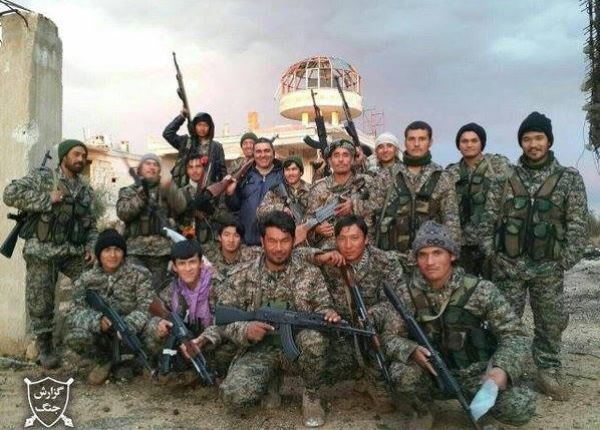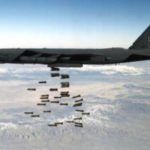As a newly-married but penniless student in the Afghan city of Herat, Mehdi recalls he had little idea how he was going to support his new family.
Pondering his meagre finances and surveying Afghanistan’s bleak jobs market, he was at a loss until a friend made an unexpected offer.
The friend, who Mehdi declined to name, had recently returned from fighting with an Iranian-backed militia in Syria, called the Fatemiyoun.
The wages were good and fighters were rewarded with prized Iranian residency papers.
Desperate for money, Mehdi, a Shia Muslim from Afghanistan’s Hazara ethnic minority who declined to give his full name, became one of what are estimated to be up to 50,000 Afghan volunteers of the Fatemiyoun brigade who have fought in the Syrian war since 2013.
The pro-Assad force organized by the Islamic Revolutionary Guards Corps (IRGC) has been pitched into some of the most intense fighting of the conflict, as part of Tehran’s campaign to help the Syrian regime recapture territory from opposition factions.
Battlefield communications obtained by the Telegraph suggest Afghan militiamen and their Iranian commanders are now fighting in Syria’s final rebel stronghold.
“I was desperately in need of money to handle my life,” Mehdi, now 26, recalled of his decision. “Here, I had a friend who was a fighter and when he saw me in need of money and told me about a profitable job.”
Smuggling himself across the border, he travelled to a suburb south of Tehran and signed up at a mosque. Most of the Fatemiyoun’s volunteers were from Iran’s large community of Afghan migrant workers and refugees, researchers and officials said.
A far smaller number are recruited directly from Afghanistan, sometimes encouraged by pro-Iran clerics.
Economic hardship has been recruits’ main motivation, according to a recent report by the United States Institute of Peace which interviewed fighters and their families, while some also sought adventure, or were driven by religious sentiment.
Mehdi’s wages began as soon as he joined up, he recalls, but so did indoctrination as instructors tried to whip up the recruits’ religious feeling. Veterans say instructors stressed that Shia holy shrines were in danger from Syrian rebels and the Fatemiyoun had a duty to defend them.
“From that day I was receiving my salary. And they started to work on our mind,” he said. “Both Afghans and Iranians were training us. Afghans were telling us something about war and working with weapons, but Iranians were working on our minds. We had so many religious programs that we were thirsty for martyrdom. We were counting down to go to Syria and die,” he said.
“They were telling us that our beliefs are the only thing we have and we should defend them.”
Training was often cursory. If commanders were short of troops at the front, recruits sometimes only had 10 days of training, recalled another veteran who gave his name as Ali Reza.
If the situation was better, it could be twice as long.
“Some were asking why Iran’s military does not intervene directly, and Iranians were saying that they don’t intervene directly through their military because US forces are there and could create more pressure between the two countries,” Ali Reza said.
Both men were pitched into the battle for Aleppo. The Fatemiyoun were directed by Iranian commanders and employed to breach defenses, or clear the way ahead of Syrian forces.
Casualty rates were often appalling. “In one of my most intense fights, our group had nearly 50 members but when we reached the rear base, only three or four were unhurt,” he said. ”Two of my friends were killed there, one had a fiancé. I saw the deaths of my many friends by my own eyes in Syrian front lines.”
Mehdi said he had served three tours of six months each, before deciding he had enough. “First, I got enough money and now I don’t need as much,” he said.
He also felt the shrines he had vowed to defend were no longer in danger. Many of the Afghans who fought at the peak of the war have demobilized, staying in Iran to take advantage of their new legal status, or returning across the border to family.
Those returning to Afghanistan are often viewed with suspicion by the authorities, who doubt their loyalties.
Shia religious and political leaders in Afghanistan have almost all opposed sending Afghans to join the Fatemiyoun.
Yet if the call to defend the holy shrines again, Mehdi said he would return. “If I feel they are again close to destroying shrines, I will not hesitate and will go back.”













